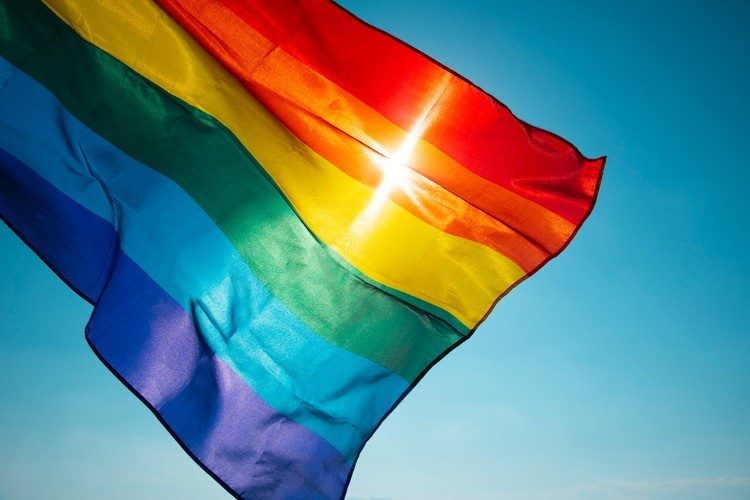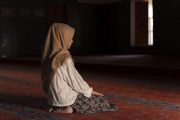
On August 8, Iraq’s official media regulator instructed all media and social-media companies operating within its territories to cease using the term “homosexuality” and substitute it with “sexual deviance,” according to a document from the regulator. With U.S. influence in Iraq waning, this latest piece of news illustrates how traditional Islamic values are staging a comeback in the Arab state.
The National Communications and Media Commission of Iraq (NCMC) said that it “directs media organizations … not to use the term ‘homosexuality’ and to use the correct term ‘sexual deviance,’” Reuters reported.
News and entertainment media, as well as internet and phone companies, must ensure that their apps comply with the latest directive. Moreover, the directive also forbids the use of the word “gender.”
Although a government spokesman said that a penalty for breaking the law has not yet been set yet, it may include a fine.
While Iraq’s 1969 penal code did not outlaw homosexuality, it provided no protections from extrajudicial harassment to gays and lesbians. An amendment to the law in the 1980s legalized the “honor killing” of homosexuals by their family members, whereas a 1993 amendment to the constitution broached the death penalty for homosexual acts.
Following the 2003 American invasion of Iraq, occupation governor Paul Bremer did away with the death penalty and reverted the country’s penal code back to its 1969 version. While no new anti-gay laws have been passed since, Western media outlets reported a surge in attacks on homosexuals by police and militias after the partial withdrawal of American forces in 2012, notwithstanding claims from the U.S. State Department in 2019 that it trained Iraqi security forces “on the proper observance of human rights.”
The NCMC that issued the directive was established by the U.S. occupation government in 2004.
Earlier this summer, protesters in Baghdad burned rainbow-colored “Pride” flags in response to a spate of Quran burnings in Sweden and Denmark. Major Iraqi political parties have also in the past two months increased their criticisms on LGBTQ+ behavior.
More than 60 countries criminalize gay sex, while same-sex sexual acts are legal in more than 130 countries, based on figures from Our World in Data.
Meanwhile, the World Bank has reduced funding for Uganda following the African country’s passing of strict anti-sodomy laws.
The World Bank Group published a statement August 8 claiming that “Uganda’s Anti-Homosexuality Act fundamentally contradicts the World Bank Group’s values,” alleging that eliminating poverty would be only possible if “it includes everyone irrespective of race, gender, or sexuality.”
“This law undermines those efforts. Inclusion and non-discrimination sit at the heart of our work around the world.”
Besides, the World Bank stated that it is presently deliberating on “measures that are necessary to ensure projects are implemented in alignment with our environmental and social standards” with authorities. The organization declared that it will withhold new public funding from Uganda “until the efficacy of the additional measures has been tested.”
“Third-party monitoring and grievance redress mechanisms will significantly increase, allowing us to take corrective action as necessary,” the statement read.
Notwithstanding its decision to withdraw funds from Uganda, the World Bank said it remains “committed to helping all Ugandans — without exception — escape poverty, access vital services, and improve their lives.”
Uganda’s Permanent Representative to the United Nations, Adonia Ayebare, responded to the World Bank’s decision on X, formerly known as Twitter.
“This is whimsical behavior by @WorldBank towards a member state,” Ayebare penned. “The values referred to in taking this draconian decision against Uganda are not universal, they are contested. This makes the case for reform of work methods including the board more urgent and pertinent.”
Prominent Ugandan anti-sodomy activist Martin Sempa pointed out that the “LGBTQ World Bank Group” boycotting Uganda “could be a blessing in disguise” since it would allow the country to inch closer to the BRICS nations of Brazil, Russia, India, China, and South Africa.
Previously, Uganda passed its anti-sodomy law in Parliament and implemented punishments for involvement in homosexual acts. In response to U.S. President Joe Biden’s threat to meddle with the country’s domestic affairs and reduce aid to the country over its anti-homosexuality law, Ugandan students from at least 13 universities even took to the streets in front of the country’s Parliament, chanting, “We don’t want your pro-gay money. We want and love our country more than money.”
Simultaneously, Ugandan President Yoweri Museveni reiterated that he would not be pressured by Western money, saying, “If they cut aid, we shall sit down and discipline our expenditure, rearrange our budgets; if they interfere with our trade we shall trade with others.”
Notably, the Ugandan president, Parliament, people, and religious leaders such as Catholic bishops have articulated that the recent law against homosexuality is to safeguard marriages, families, and particularly the young from homosexual predators who wish to spread their sexually deviant behaviors in society.
Also, the speaker of Parliament praised lawmakers and President Museveni for standing up to protect the family. In a formal statement on the law, she declared, “As Parliament of Uganda, we have heeded the concerns of our people and legislated to protect the sanctity of [the] family… We have stood strong to defend the culture, values, and aspirations of our people.”
Recognizing that families form the basic unit of society, with marriage between one man and one woman as the origin of such families, and that homosexuality jeopardizes marriage at its core as homosexual unions do not bring forth children, one Ugandan lawmaker proclaimed, “A person proposing that there should be same-sex ‘marriages,’ sexual relationships, is a person that is not just attacking the family, but a person seeking to wipe the entire humanity out of the face of this earth.”
Alluding to the aggressively sexual agenda of the UN, one human-rights advocate stated, “They push a form of sexual, social colonization by getting to your children and seeking to change their worldview on issues of sexual orientation, gender identity, abortion, and they teach them about sexual pleasure and sexual acts. And we have their manuals used all throughout Africa.”
In April, the president of Uganda declared that “Africa should provide the lead to save the world from this degeneration and decadence which is really very dangerous for humanity.” In a February interview with LiteSiteNews, Ugandan Archbishop Paul Semogerere said that bishops in Uganda were very much aware of external pressures to adhere to LGBT ideology and have been exploring means to “resist” it, including increasing awareness among young people, since they form a significant part of the Ugandan population and are pressured to cave in to pro-gay propaganda more than other segments of the population.


